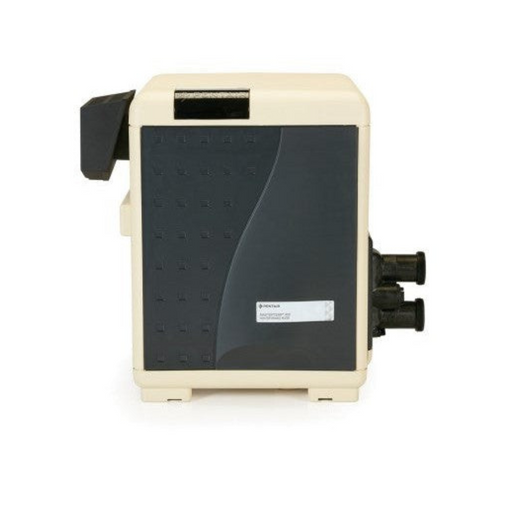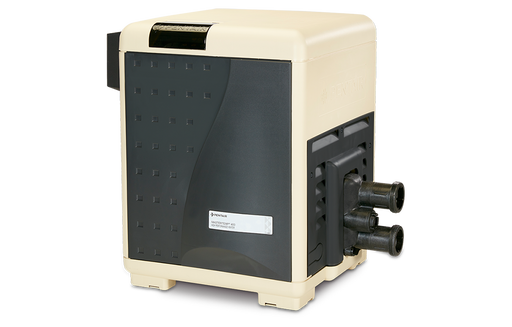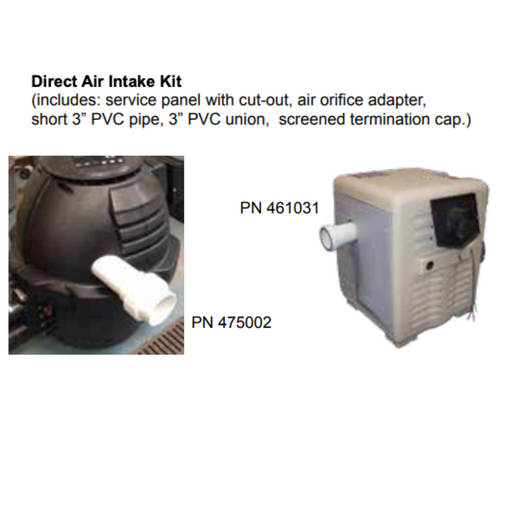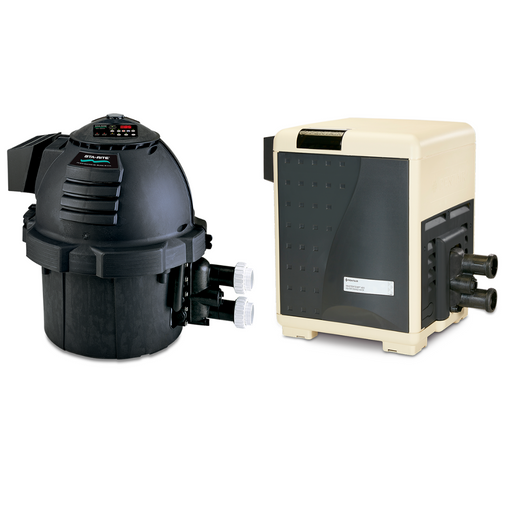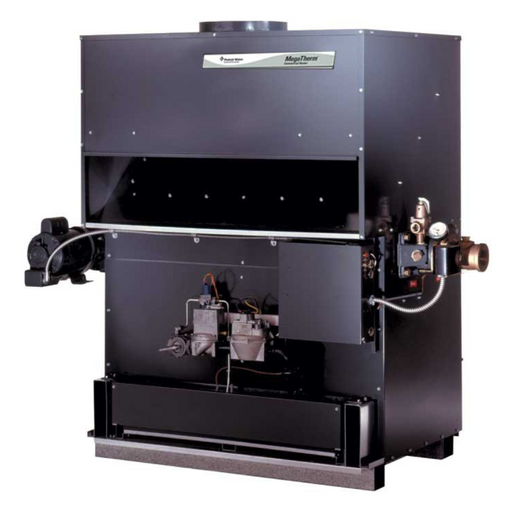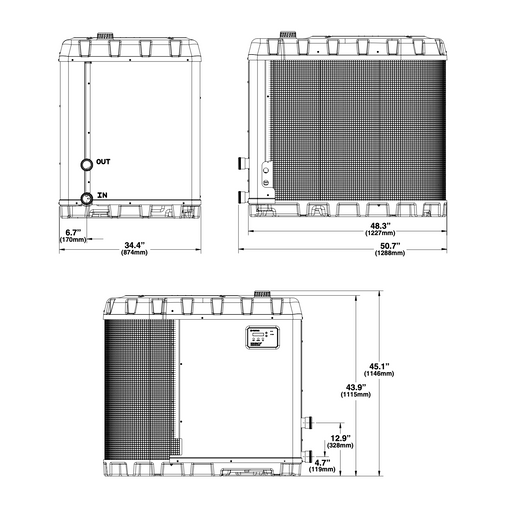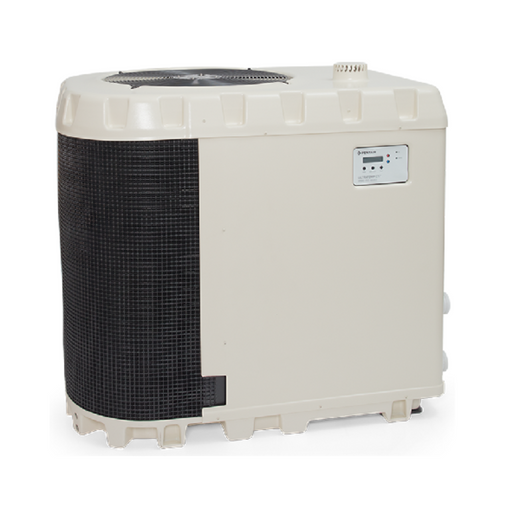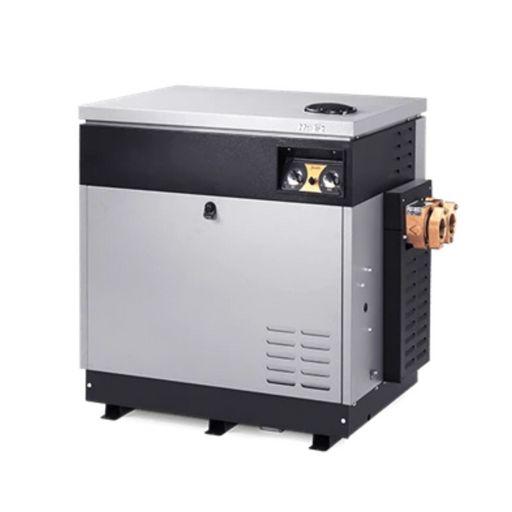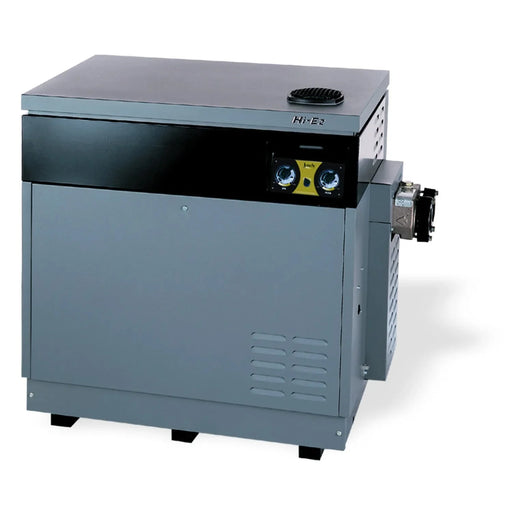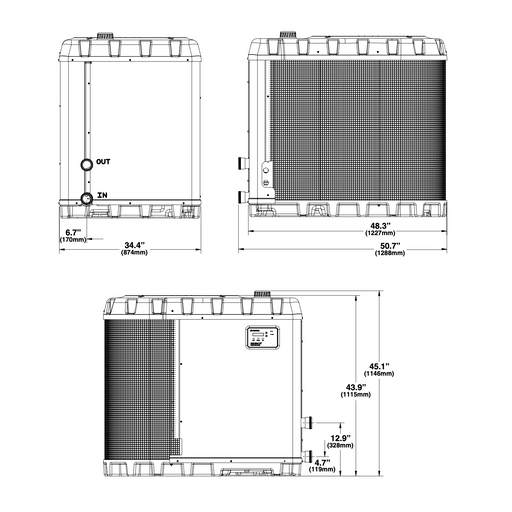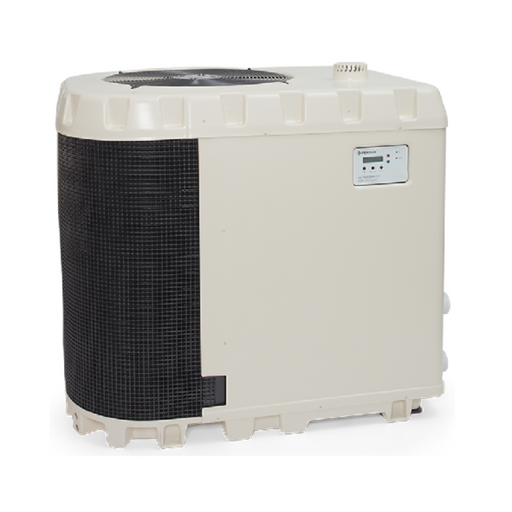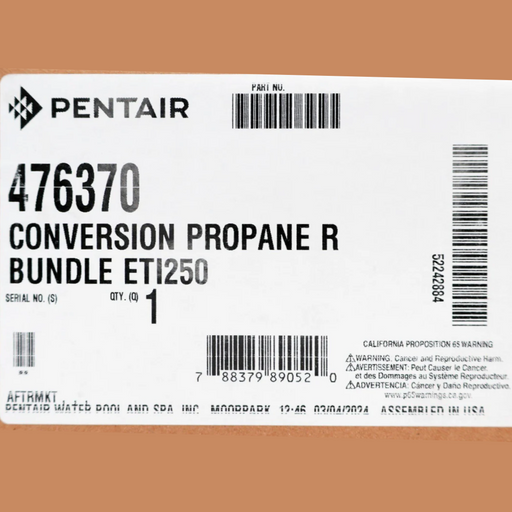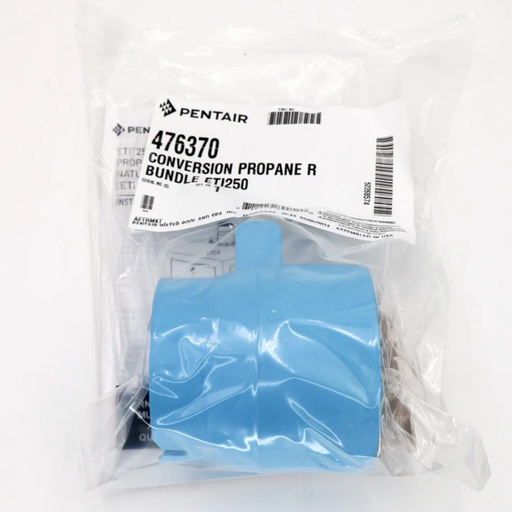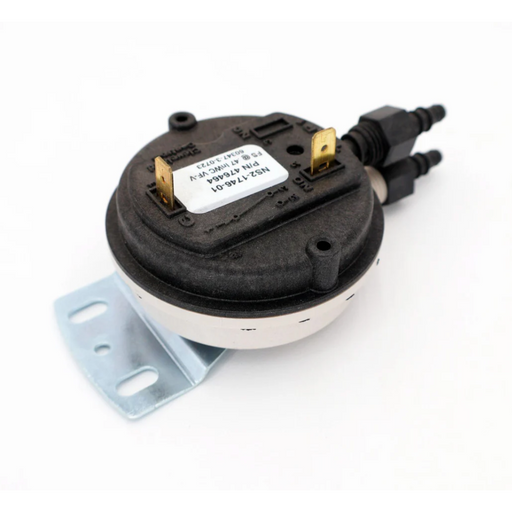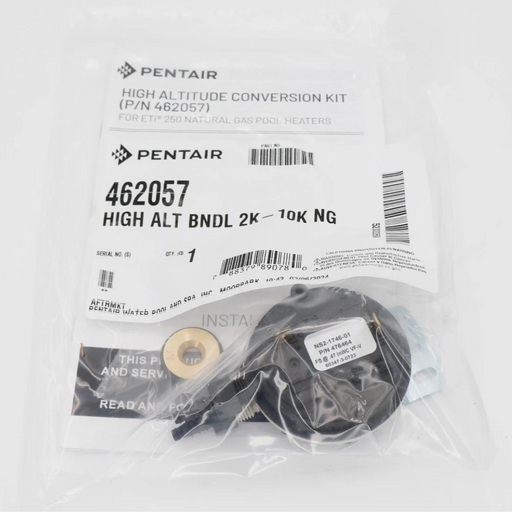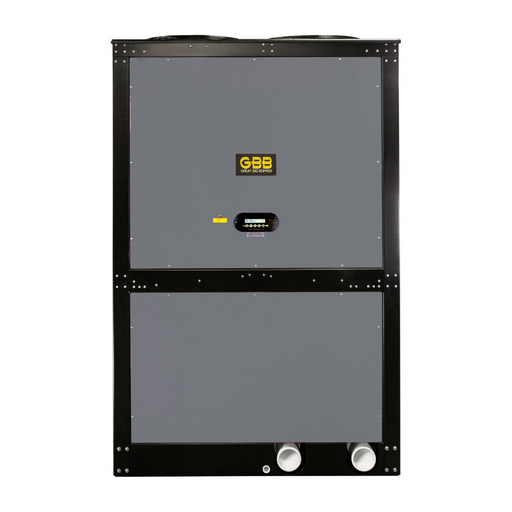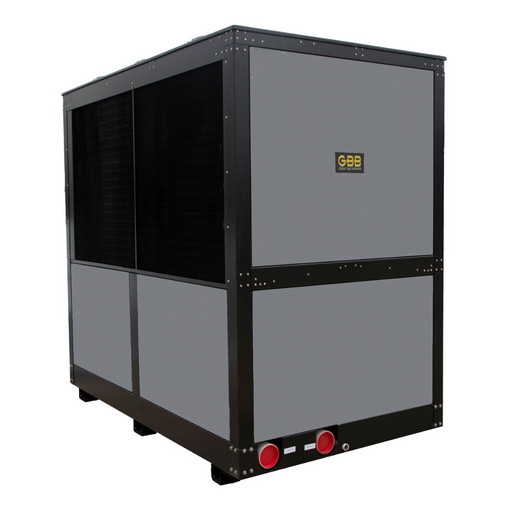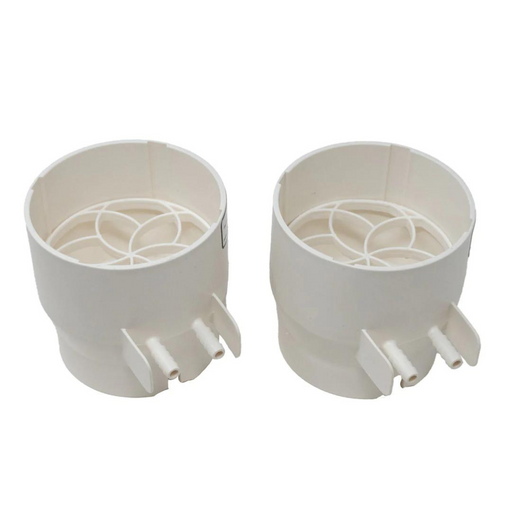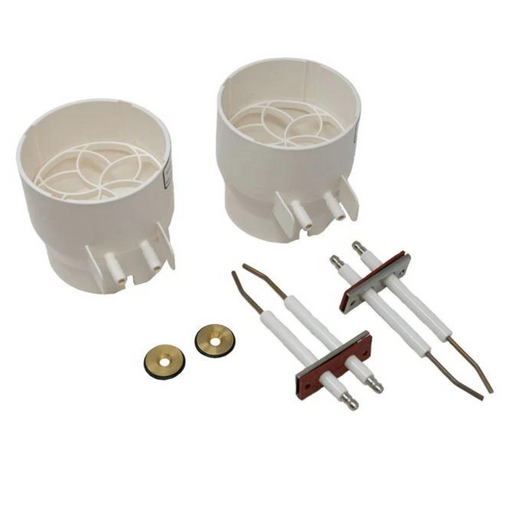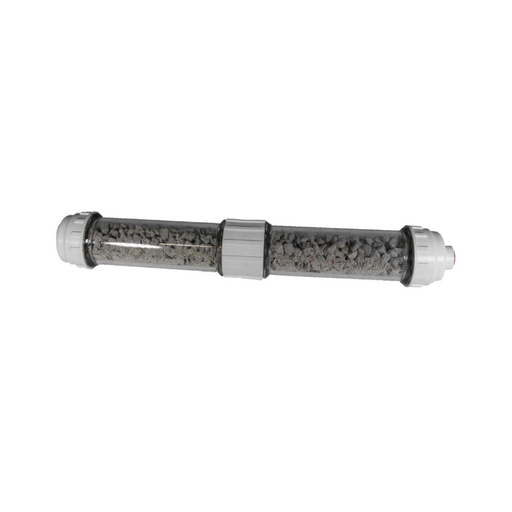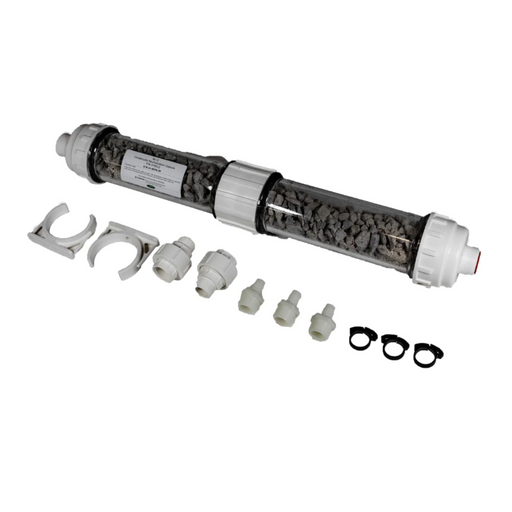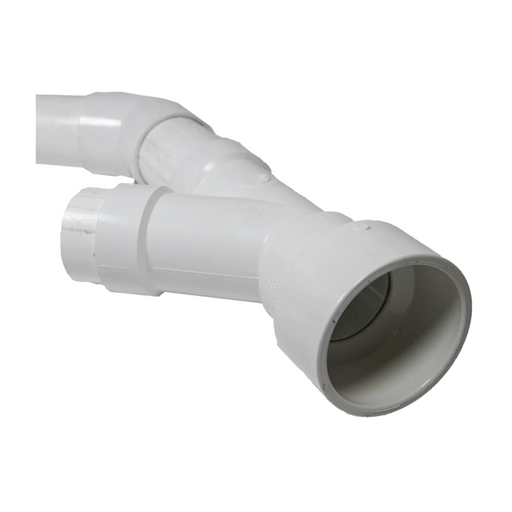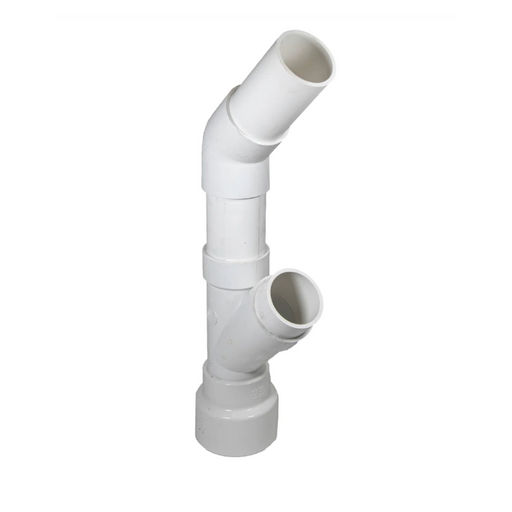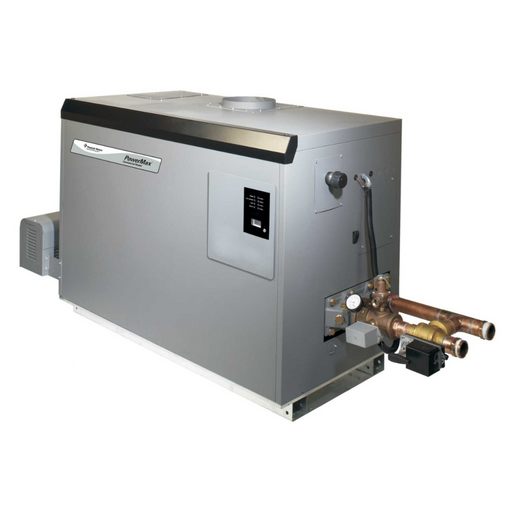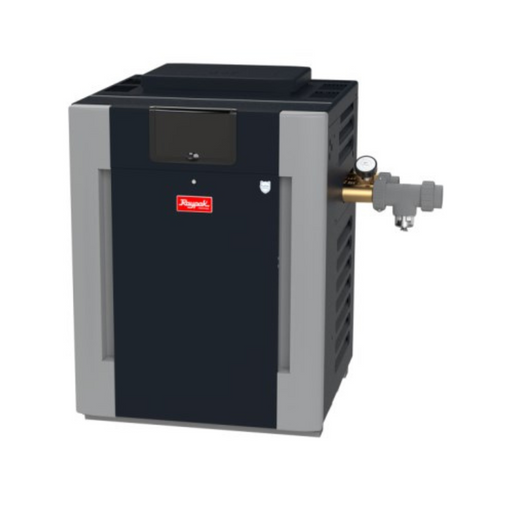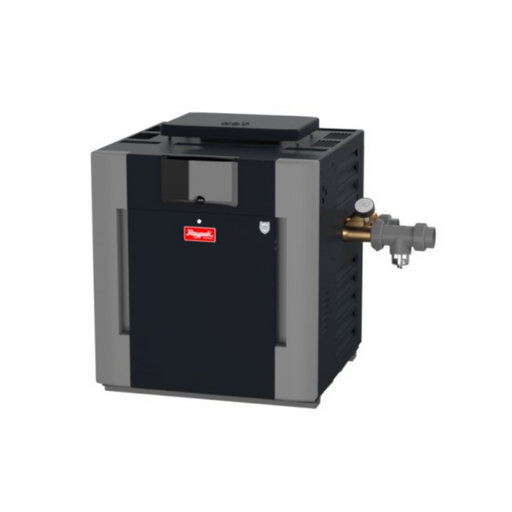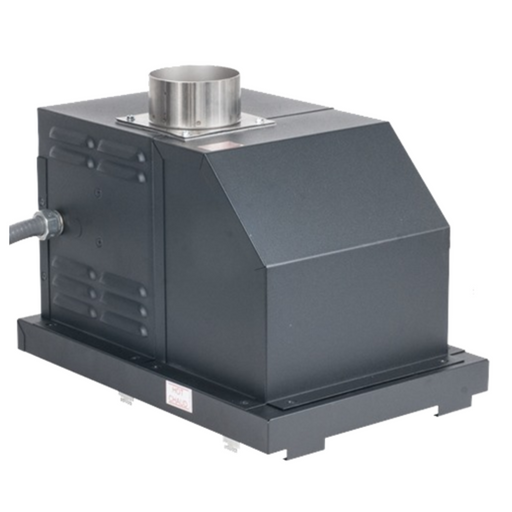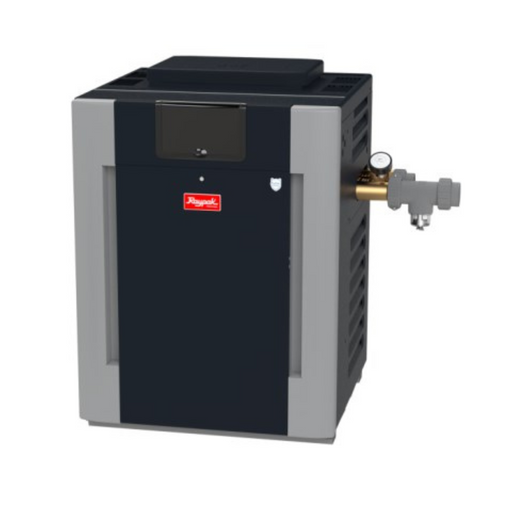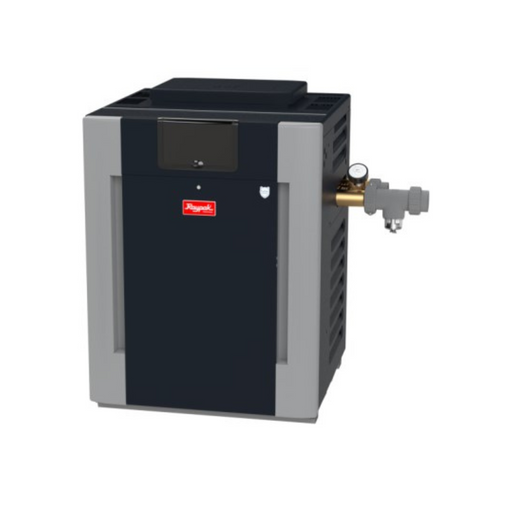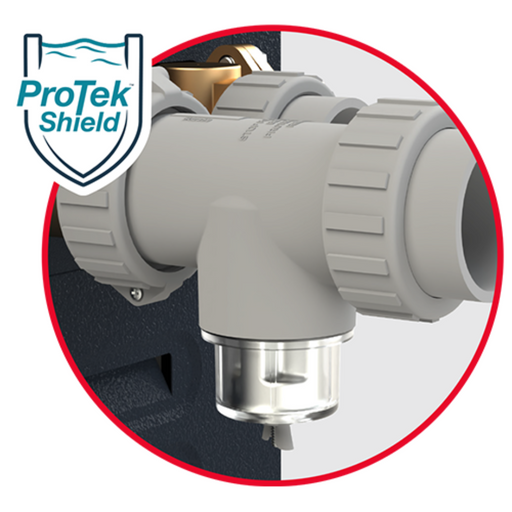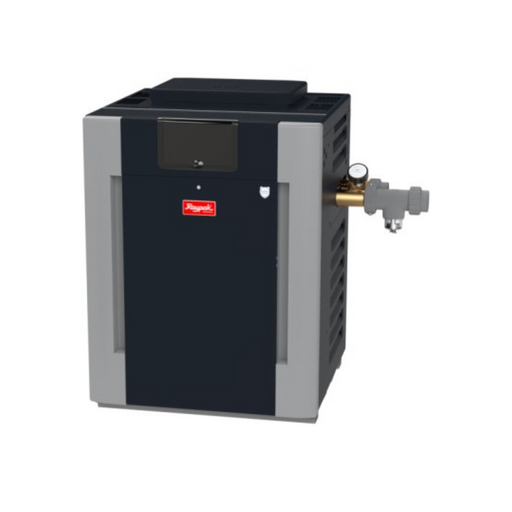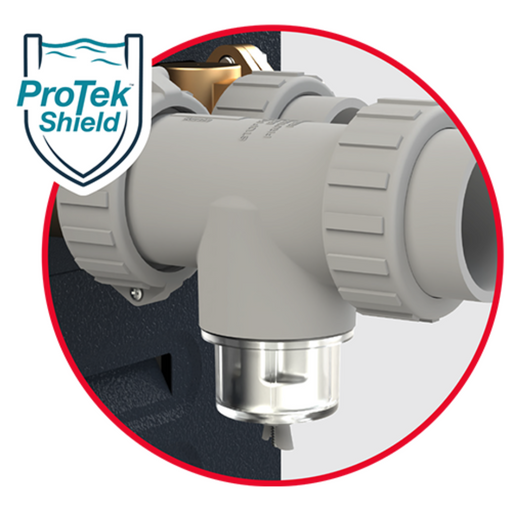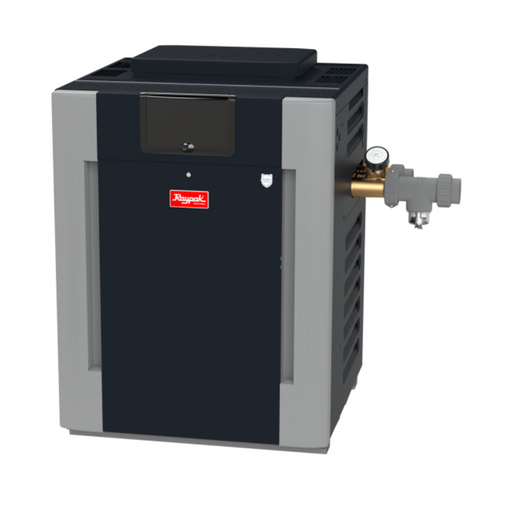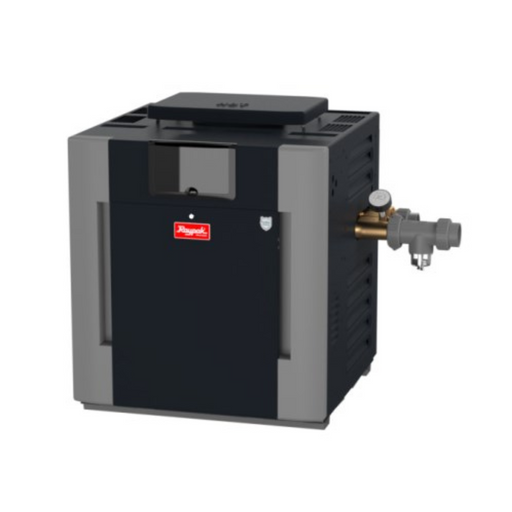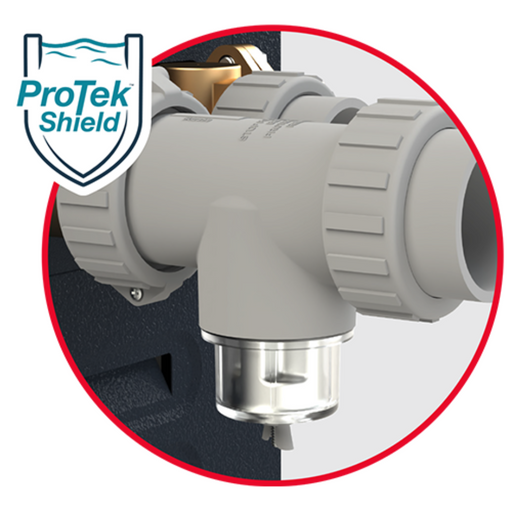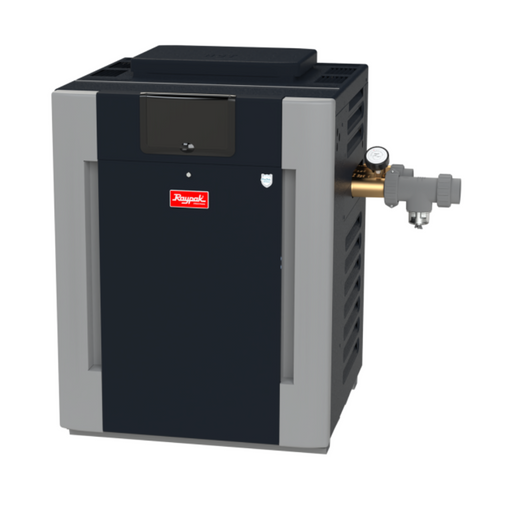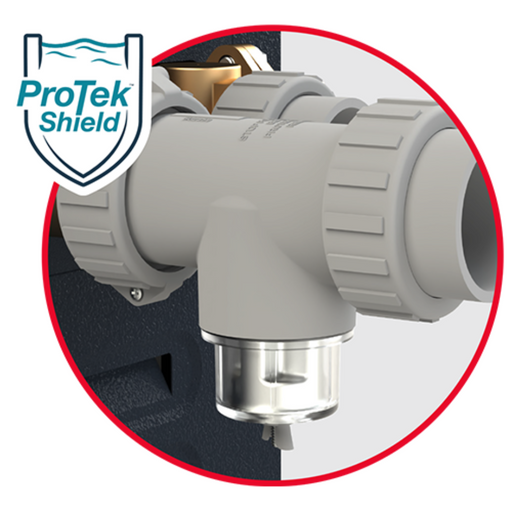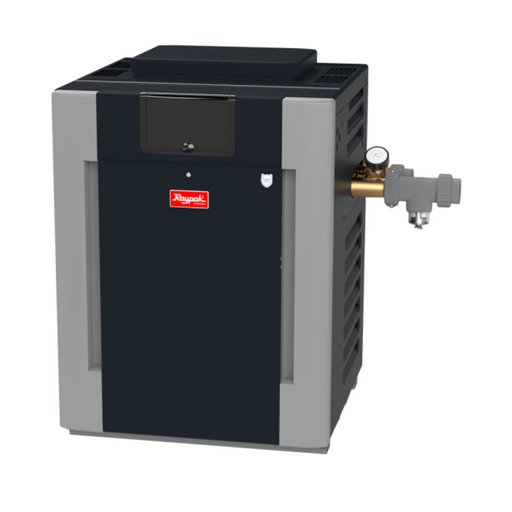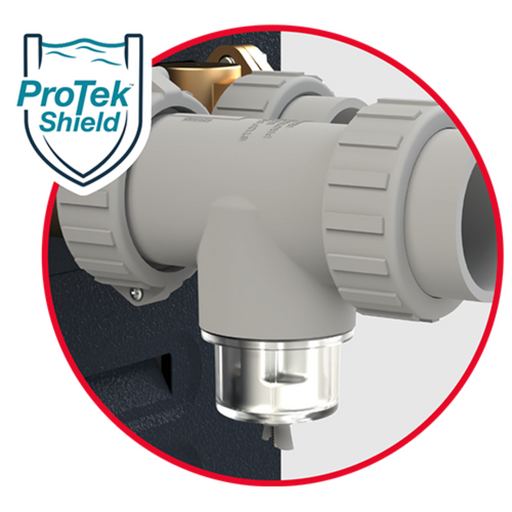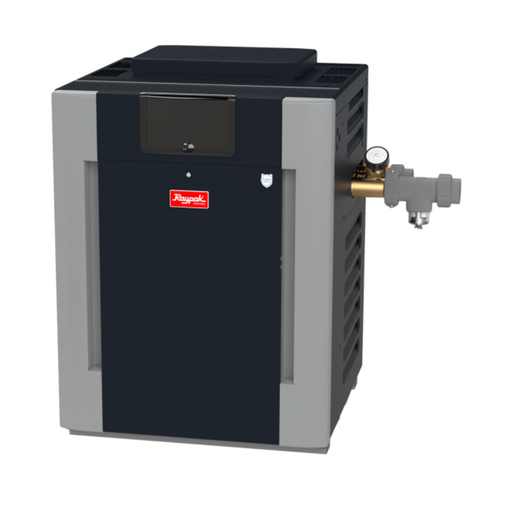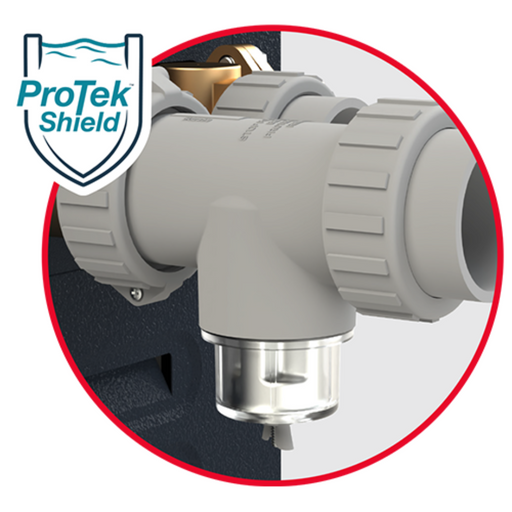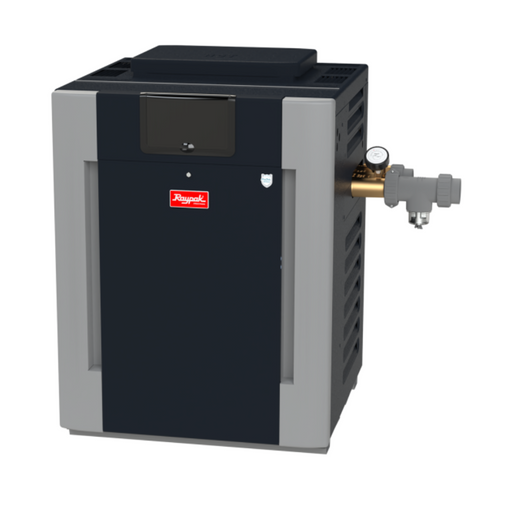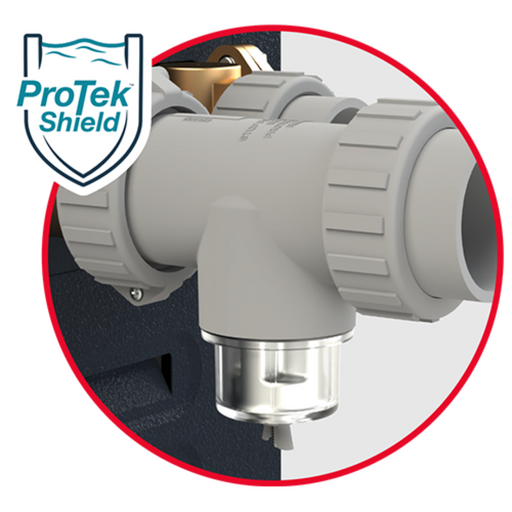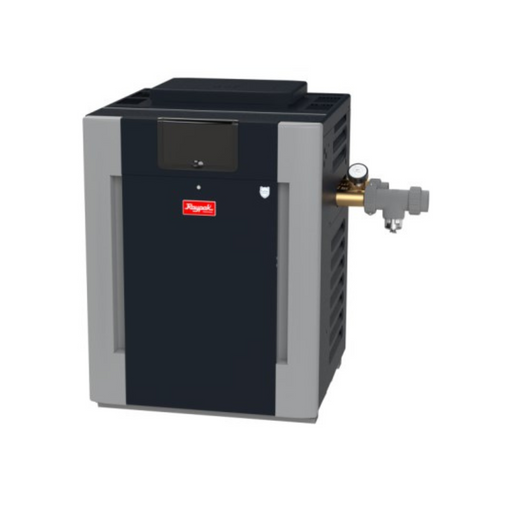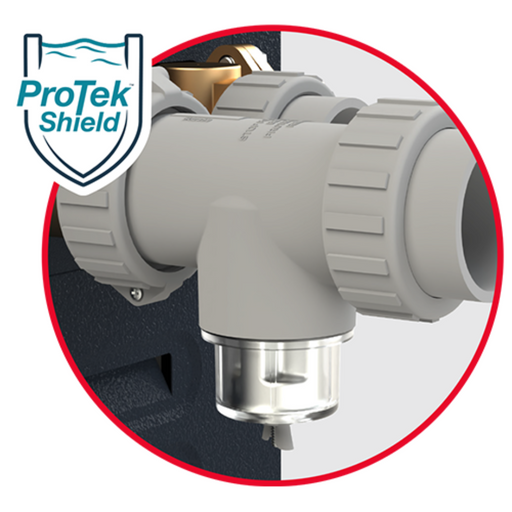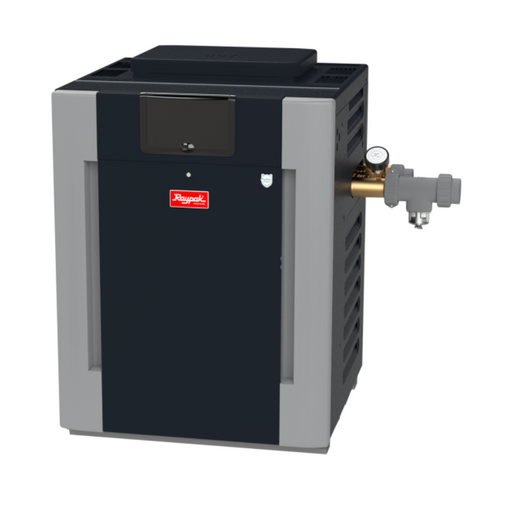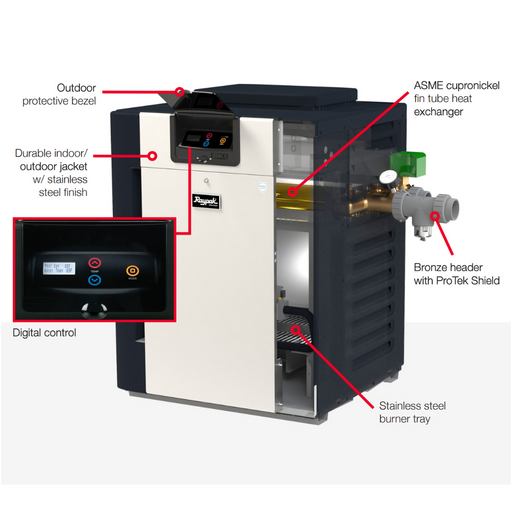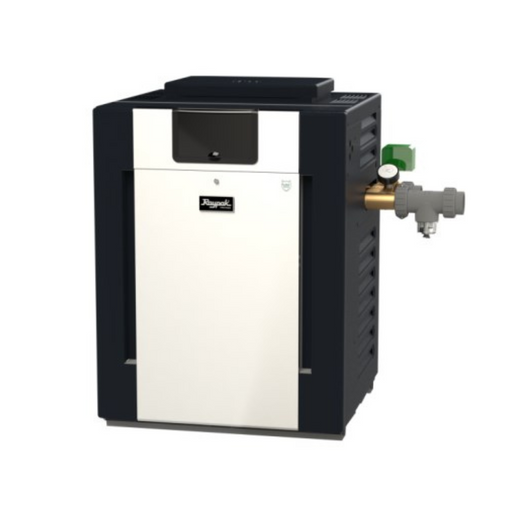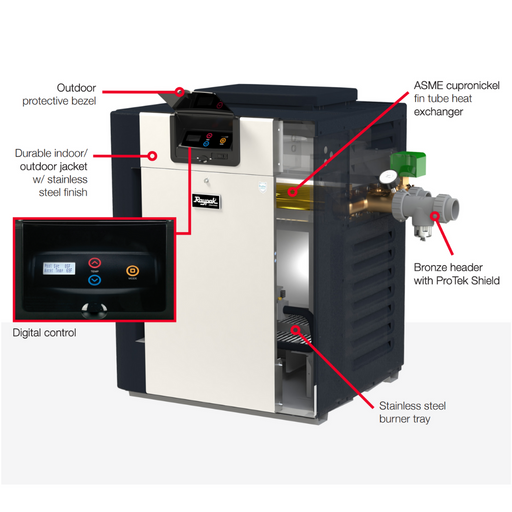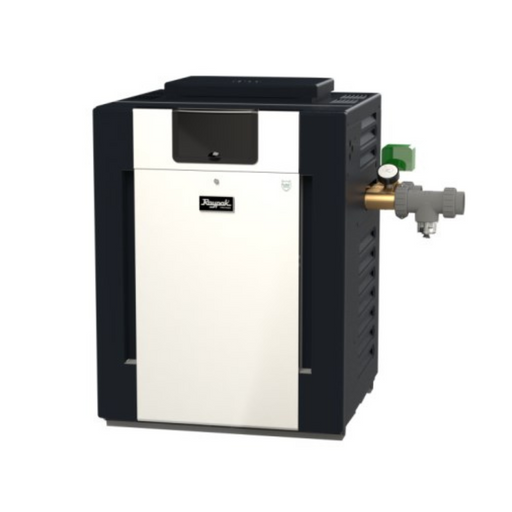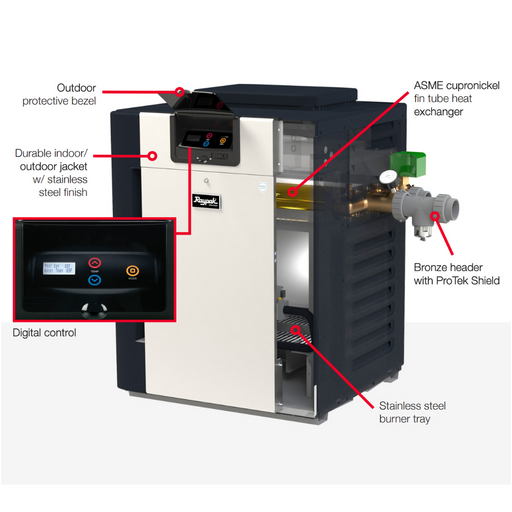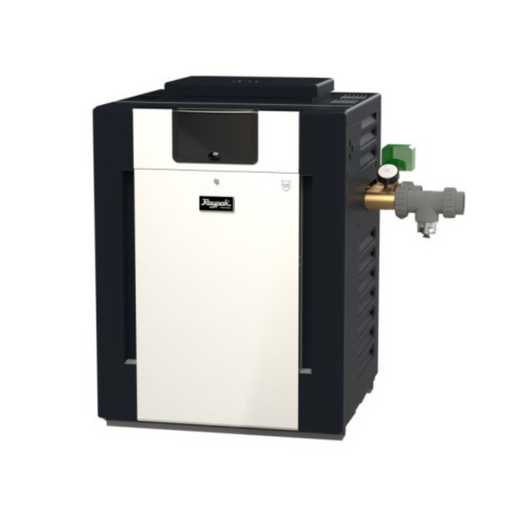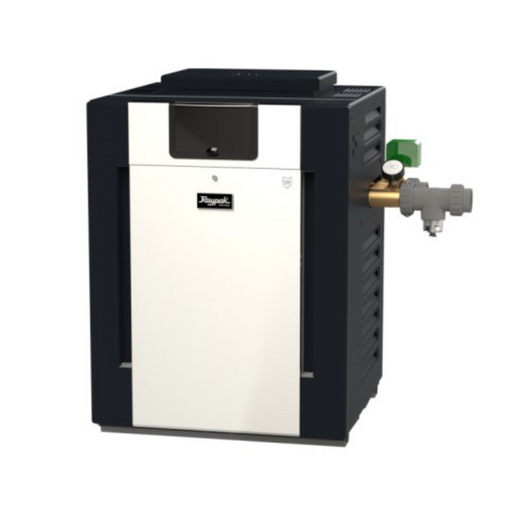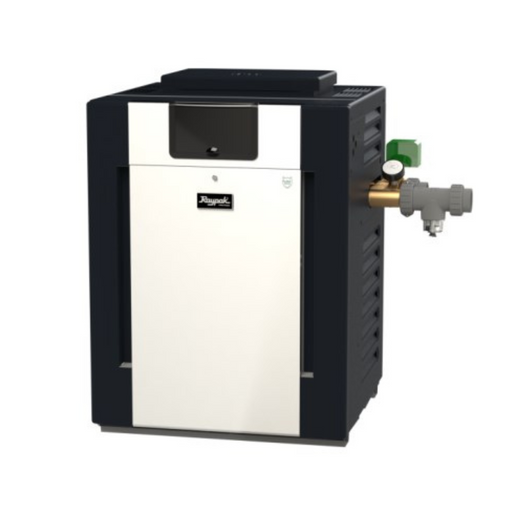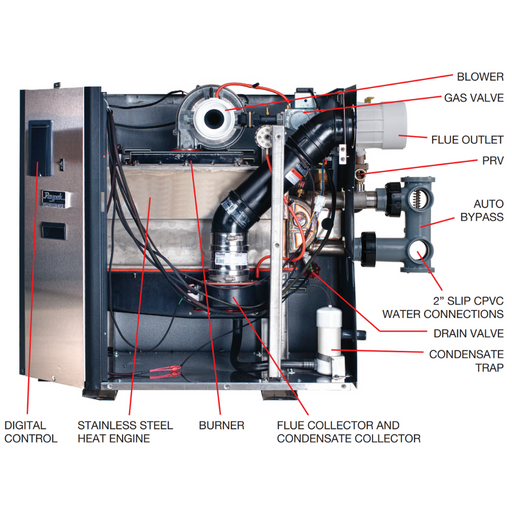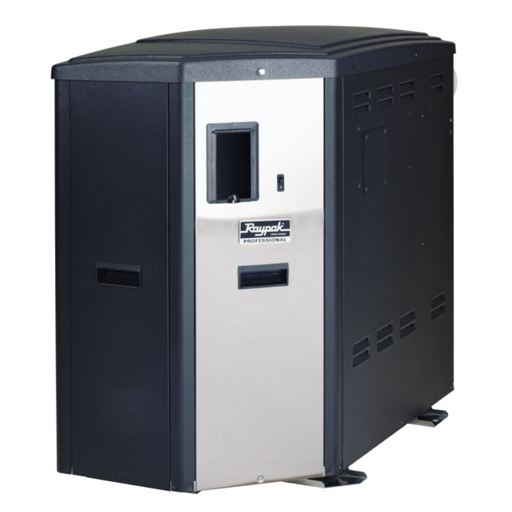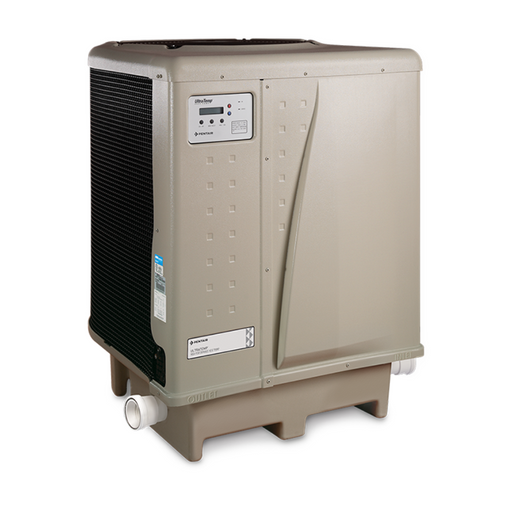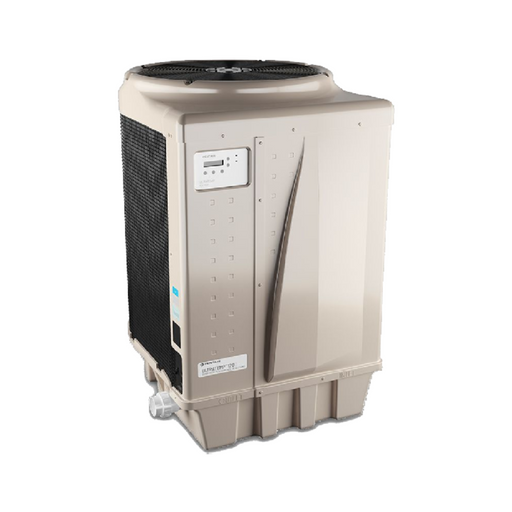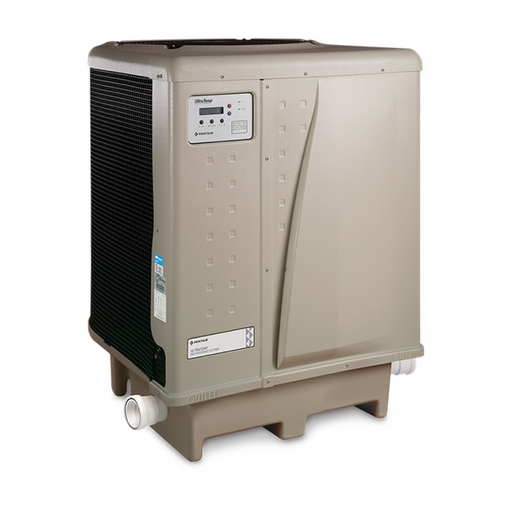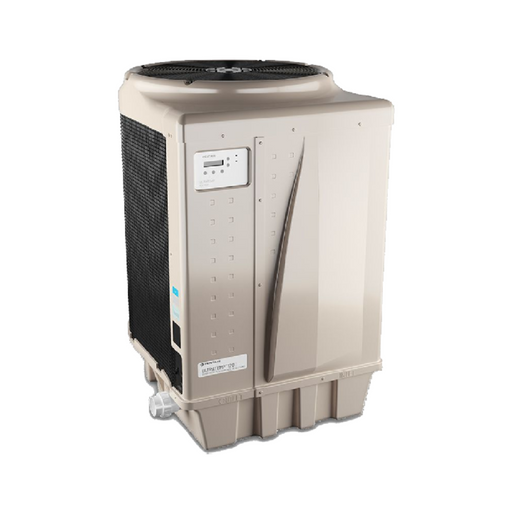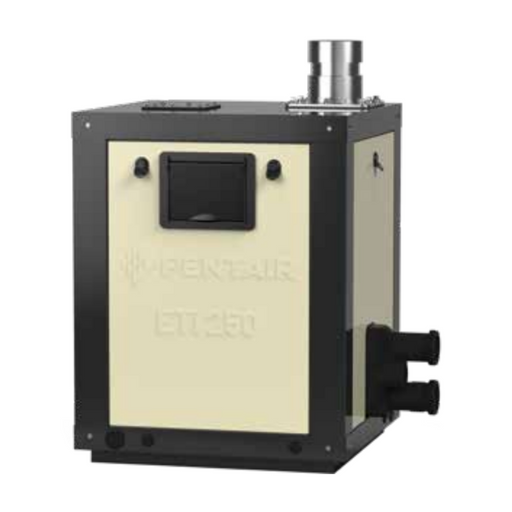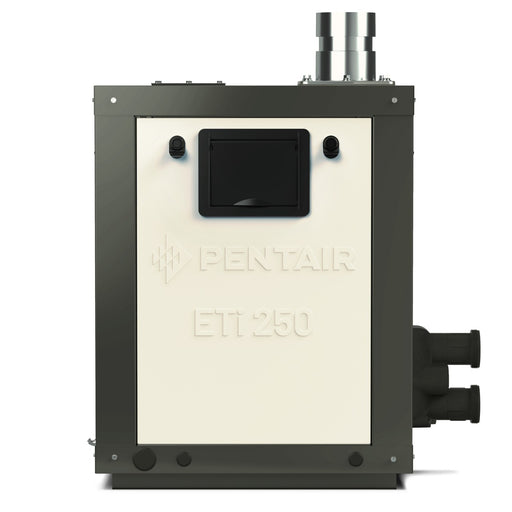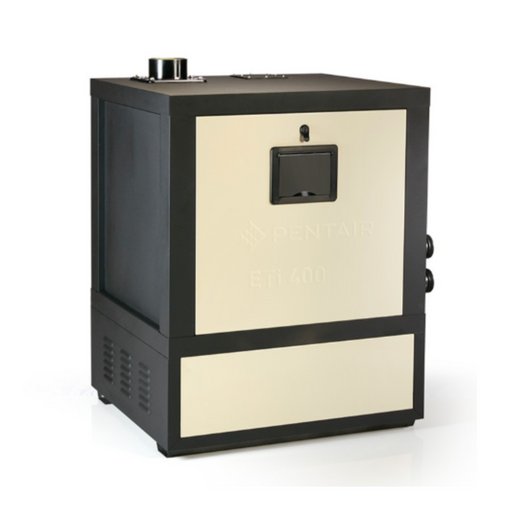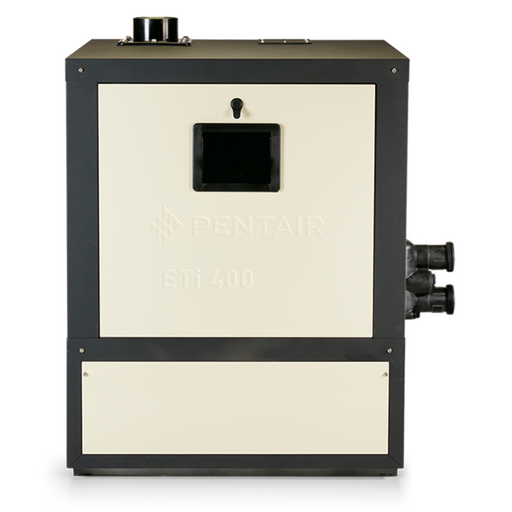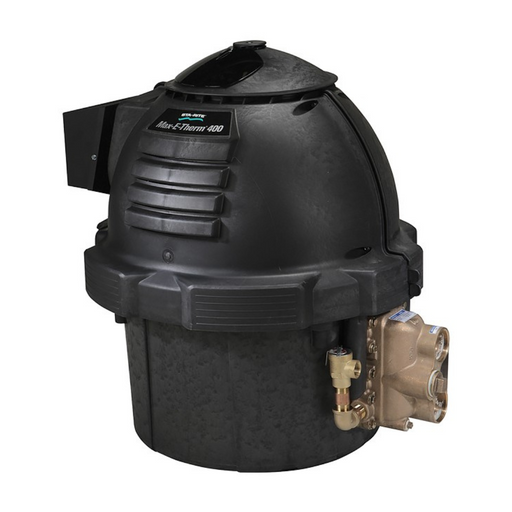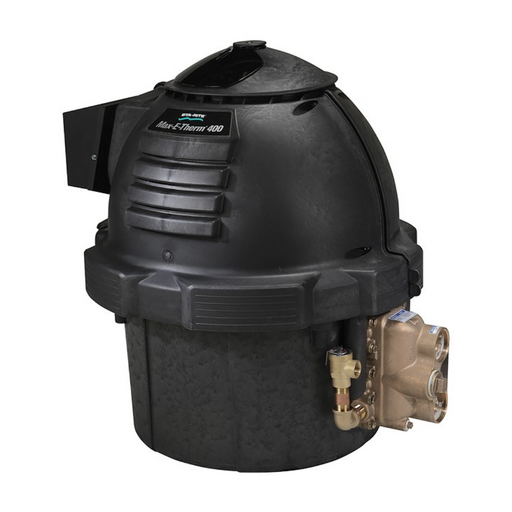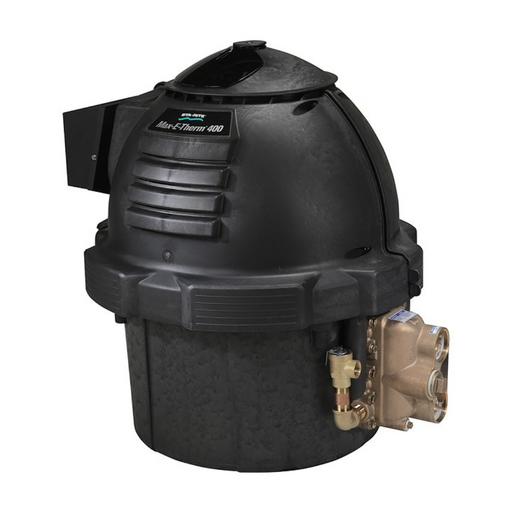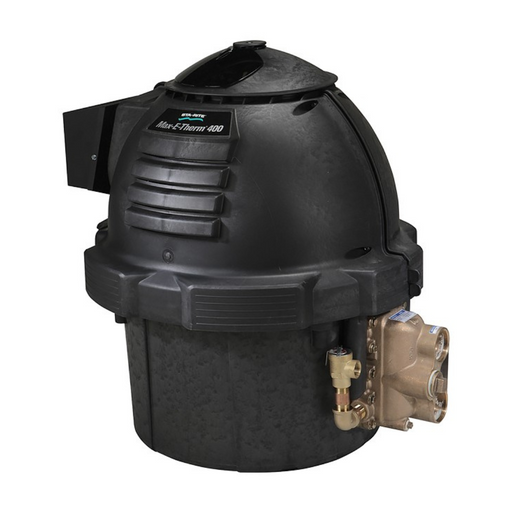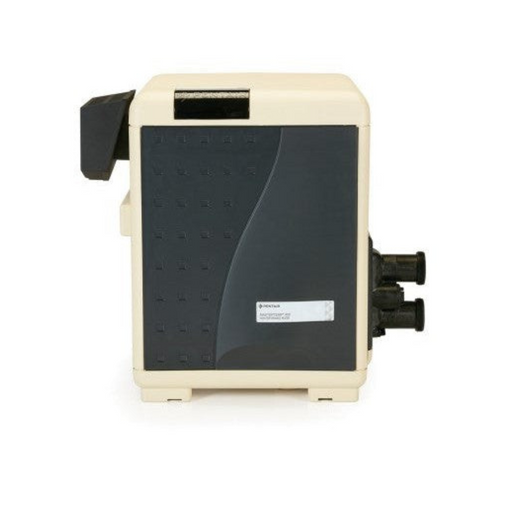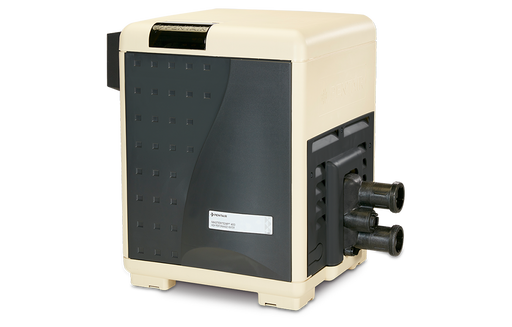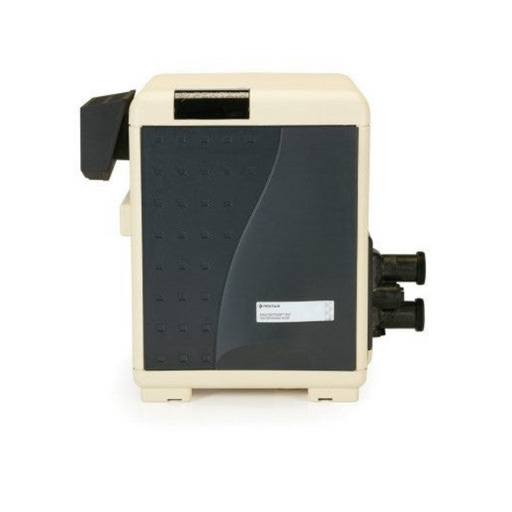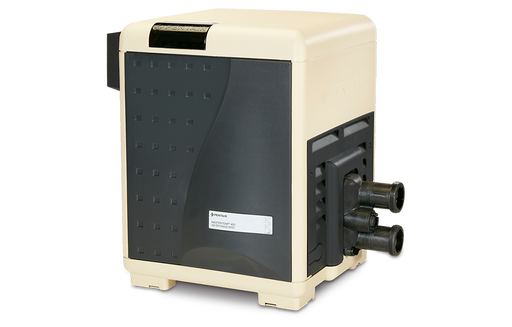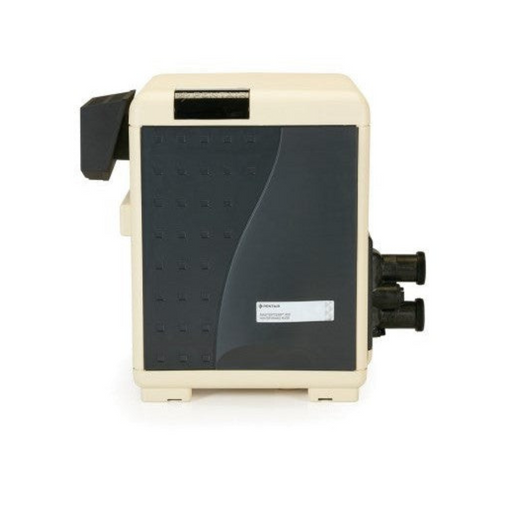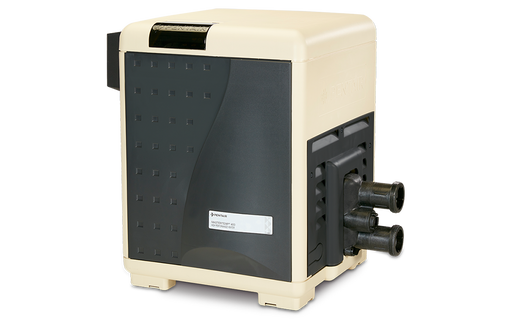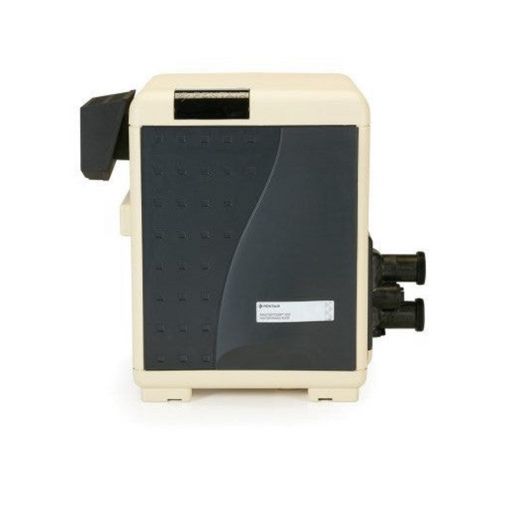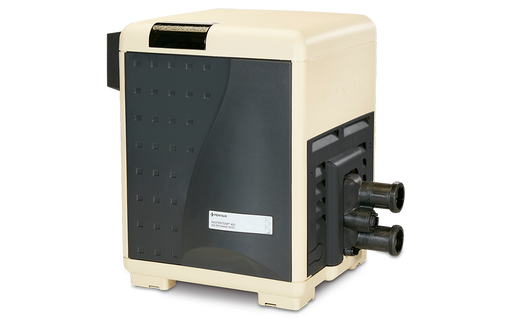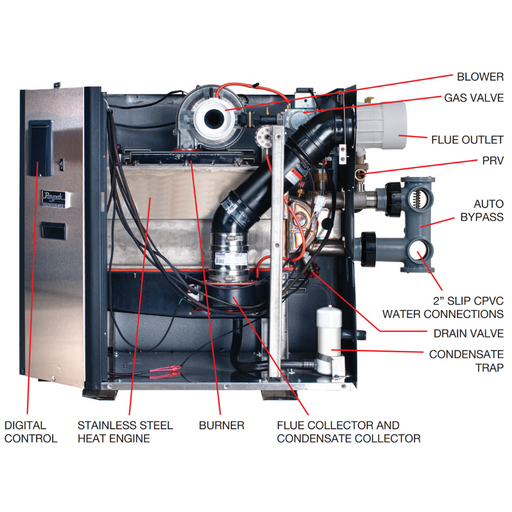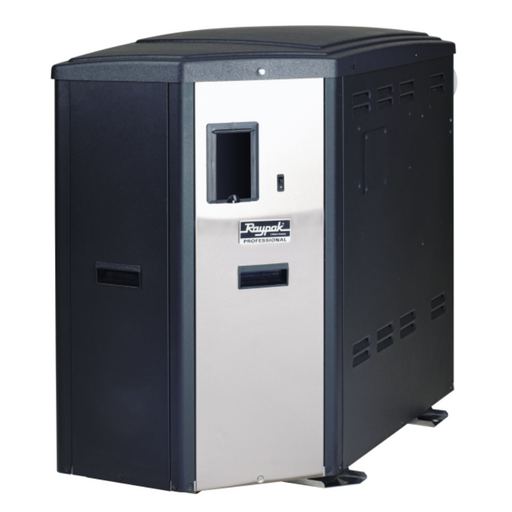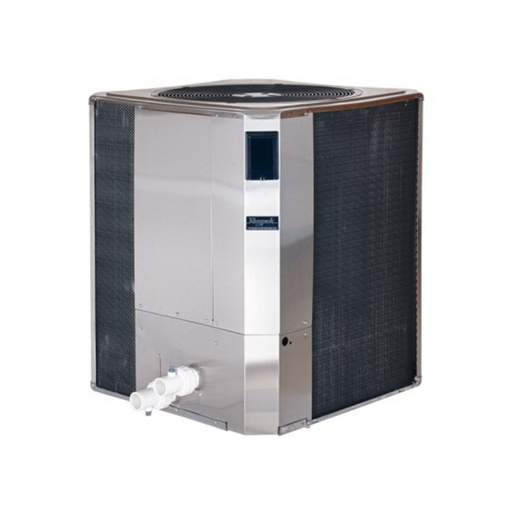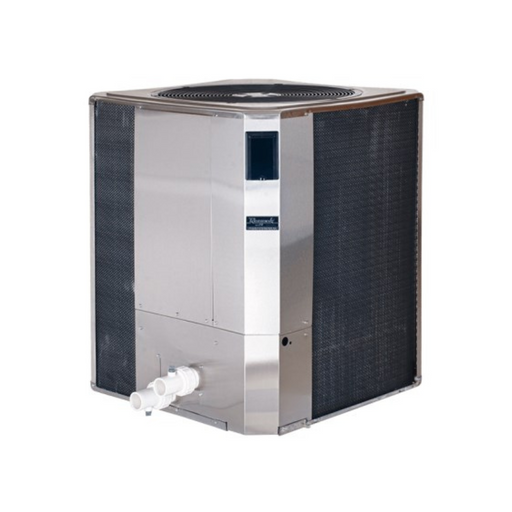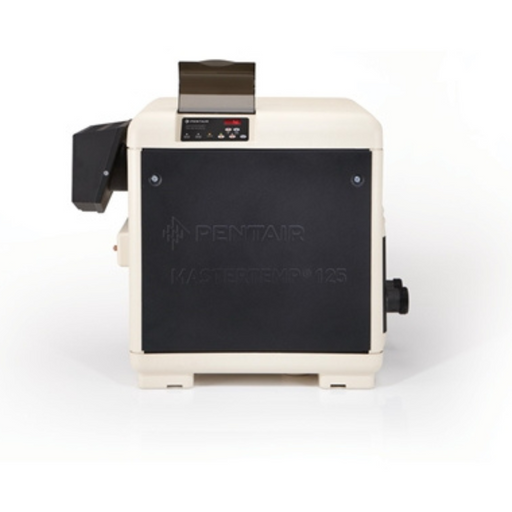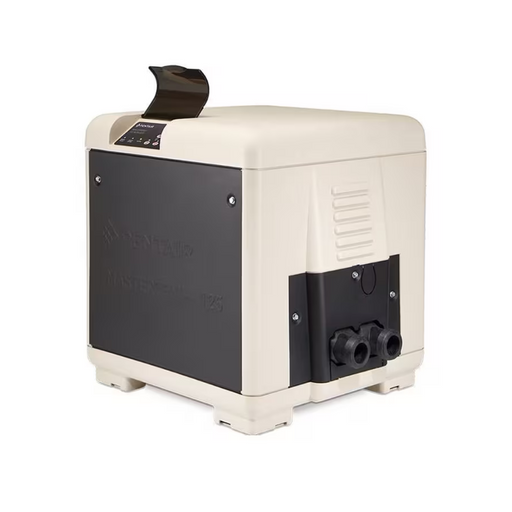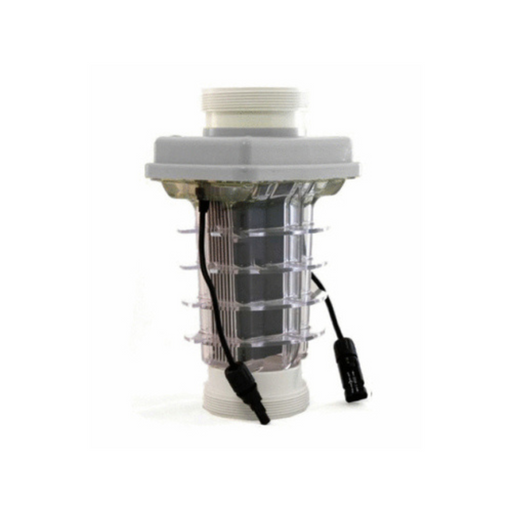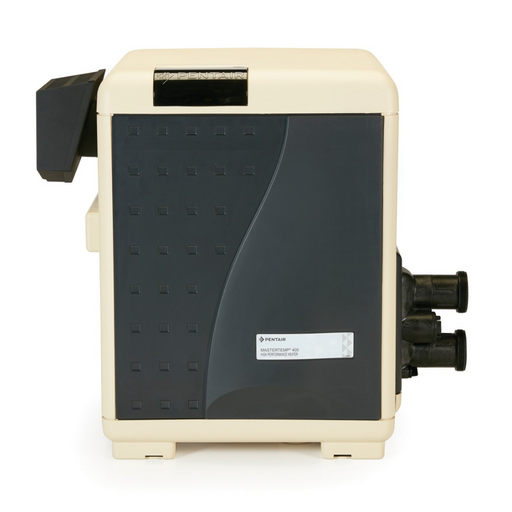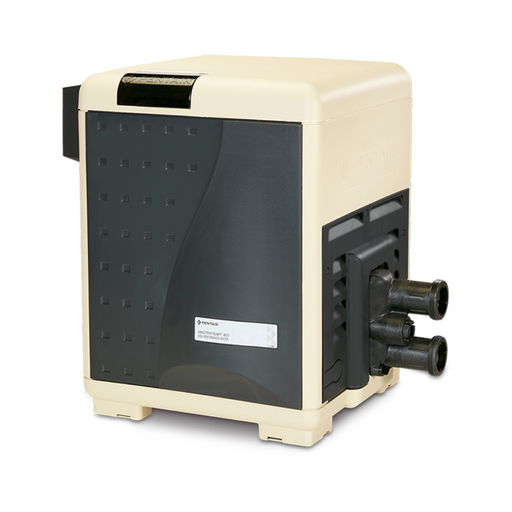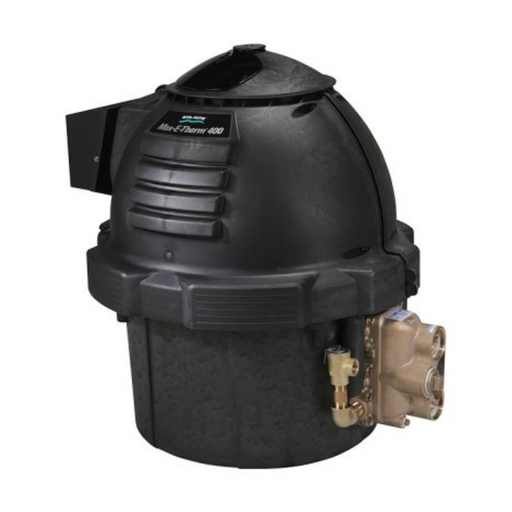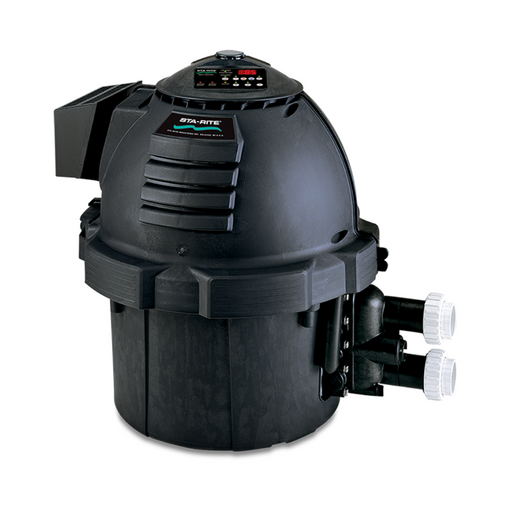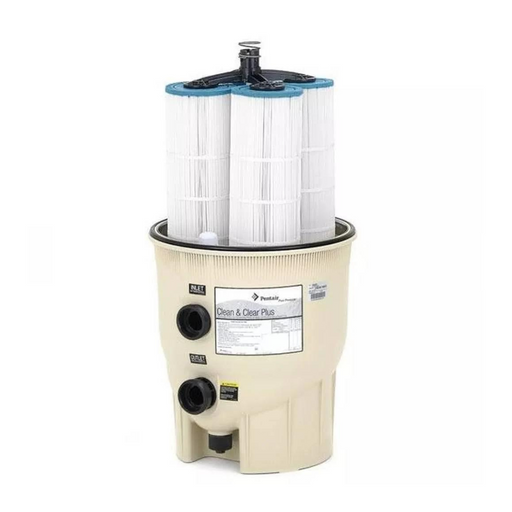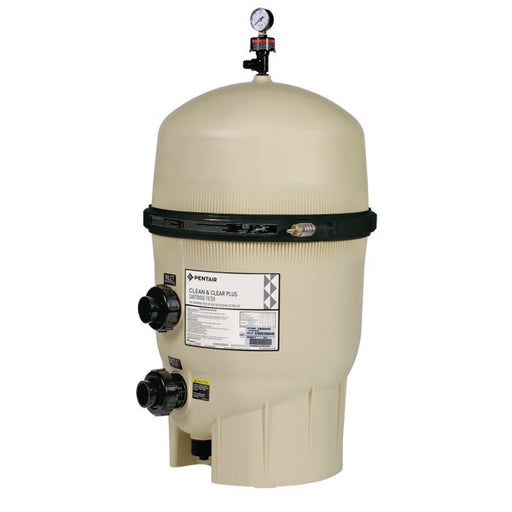Call or Text 303-736-9856
Commercial Pool Heaters & Heat Pumps
Filters
-
Pentair 461021 MasterTemp ASME HD Commercial Heater, Natural Gas, Cupronickel, 400K BTU
Ultra-High ASME® certified performance in a compact, quiet, and eco-friendly design for your commercial application. The bronze header design allo...
View full details -
Pentair MAX-E-THERM® and MASTERTEMP® Pool Heater Accessories
Original price $19.99 - Original price $275.00Original price$19.99 - $275.00$19.99 - $275.00Current price $19.99| /Optional Smart Heater Bypass valve control diverts water flow when the heater isn’t needed to help save up to 35% in yearly operational costs. VERT...
View full detailsOriginal price $19.99 - Original price $275.00Original price$19.99 - $275.00$19.99 - $275.00Current price $19.99| / -
Pentair Commercial MegaTherm Indoor/Outdoor Heater, 500-5000K+ BTU
HIGH-PERFORMANCE ELECTRONIC IGNITION HEATER MegaTherm Pool Heaters are designed for commercial, institutional and large residential where economica...
View full details -
Pentair UltraTemp ETi Hybrid Heat Pump Heater, 460969, Natural Gas, 220K BTU
THE FIRST POOL HEATER TO COMBINE A HEAT PUMP AND GAS-FIRED HEATER First-Ever Dual-Fuel Heating Technology, deliverying the fastest and most economi...
View full details -
Jandy EHE350NS Hi-E2 ASME Commercial Heater, Natural Gas, Cupronickel, 350K BTU
Compact Efficiency That Lasts. The most popular pool heater among pros, the Hi-E2® sets the standard with a proven in-use record of over 20 years...
View full detailsPentair UltraTemp ETi Hybrid Heat Pump Heater 462042, Propane, 220K BTU
THE FIRST POOL HEATER TO COMBINE A HEAT PUMP AND GAS-FIRED HEATER First-Ever Dual-Fuel Heating Technology, deliverying the fastest and most economi...
View full detailsPentair 476370 ETi 250 Propane Conversion Kit, 0–2,000 ft
Original price $59.99 - Original price $59.99Original price$59.99$59.99 - $59.99Current price $59.99| /Pentair ETi®250 476370 Conversion Kit from 0 - 2,000 ft, Propane Gas Compatible with: Pentair 461112 ETi 250 High-Efficiency Heater 250,000 BTU (...
View full detailsOriginal price $59.99 - Original price $59.99Original price$59.99$59.99 - $59.99Current price $59.99| /Pentair 462057 ETi 250 High-Altitude Conversion Kit, Natural Gas, 2,000 ft–10,000 ft.
Original price $59.99 - Original price $59.99Original price$59.99$59.99 - $59.99Current price $59.99| /Pentair ETi® 250 462057 High Altitude Conversion Kit for 4,000 - 10,000 ft Compatible with: Pentair 461112 ETi 250 High-Efficiency Heater, Natura...
View full detailsOriginal price $59.99 - Original price $59.99Original price$59.99$59.99 - $59.99Current price $59.99| /AquaCal Great Big Bopper Commercial Heat/Cool Pump 60 Hz 208-230V 527K BTU
Original price $50,295.00 - Original price $50,295.00Original price$50,295.00$50,295.00 - $50,295.00Current price $50,295.00| /A Real Commercial Sized Heat Pump That Heats & Cools Large Commercial Pools Up To a Half Million BTUs in One Single Unit. Heavy-Duty Design an...
View full detailsOriginal price $50,295.00 - Original price $50,295.00Original price$50,295.00$50,295.00 - $50,295.00Current price $50,295.00| /Pentair 476072 Propane Gas Conversion Kit for ETi 400 Heater
Original price $99.00 - Original price $99.00Original price$99.00$99.00 - $99.00Current price $99.00| /Specifications: Brand: Pentair Commercial, Residential, or Professional: Commercial Weight: 5 pounds UPC Code: 788379507527 Part No.: 476072 Prop...
View full detailsOriginal price $99.00 - Original price $99.00Original price$99.00$99.00 - $99.00Current price $99.00| /Pentair 475612 Condensate Neutralizer Kit for ETi 400 Heater
Original price $219.00 - Original price $219.00Original price$219.00$219.00 - $219.00Current price $219.00| /Specifications: Brand: Pentair Commercial, Residential, or Professional: Commercial Weight: 8.5 pounds UPC Code: 788379877255 Part No.: 475612 Co...
View full detailsOriginal price $219.00 - Original price $219.00Original price$219.00$219.00 - $219.00Current price $219.00| /Pentair 475971 Indoor Direct Air Intake Kit for ETi 400 Heater
Original price $199.00 - Original price $199.00Original price$199.00$199.00 - $199.00Current price $199.00| /Specifications: Brand: Pentair Commercial, Residential, or Professional: Commercial Weight: 8 pounds UPC Code: 788379877262 Part No.: 475971 Direc...
View full detailsOriginal price $199.00 - Original price $199.00Original price$199.00$199.00 - $199.00Current price $199.00| /Pentair Commercial PowerMax Indoor/Outdoor Heater, 500-2000K BTU
HIGH-PERFORMANCE ELECTRONIC IGNITION HEATER When performance is critical, the PowerMax Heater provides peak efficiency and easy maintenance in both...
View full detailsRaypak 017372 266A ASME Heater #50, Natural Gas, 266K BTU, 0-2'K
Original price $3,649.00 - Original price $3,649.00Original price$3,649.00$3,649.00 - $3,649.00Current price $3,649.00| /Raypack 017372 266A Digital Natural Gas Heater with Bronze Headers and Copper Tubing The sleek and stylish Raypak ASME Digital Gas Po...
View full detailsOriginal price $3,649.00 - Original price $3,649.00Original price$3,649.00$3,649.00 - $3,649.00Current price $3,649.00| /Raypak 017708 407A Low NOx ASME Heater #26, Natural Gas, 399K BTU
Original price $4,629.00 - Original price $4,629.00Original price$4,629.00$4,629.00 - $4,629.00Current price $4,629.00| /Raypak 017708 407A Low NOx Digital Natural Gas ASME Heater with Bronze Headers and Copper Tubing The sleek and stylish Raypak ASME Digit...
View full detailsOriginal price $4,629.00 - Original price $4,629.00Original price$4,629.00$4,629.00 - $4,629.00Current price $4,629.00| /Raypak 010745 D-2 Indoor Power Vent 120V for Models 206A-408
Original price $849.00 - Original price $849.00Original price$849.00$849.00 - $849.00Current price $849.00| /Raypak 010745 D-2 Indoor Power Vent 120V for Models 206A-408 The D-2 Power Vent assembly is a Category III mechanical draft venting system tha...
View full detailsOriginal price $849.00 - Original price $849.00Original price$849.00$849.00 - $849.00Current price $849.00| /Raypak 017371 ASME Heater #50, Natural Gas, 200K BTU, 0-2K'
Original price $3,479.00 - Original price $3,479.00Original price$3,479.00$3,479.00 - $3,479.00Current price $3,479.00| /Raypak 017371 206A Digital Ignition Natural Gas ASME Heater with Bronze Headers and Copper Tubing The sleek and stylish Raypak ASME Digital Gas Po...
View full detailsOriginal price $3,479.00 - Original price $3,479.00Original price$3,479.00$3,479.00 - $3,479.00Current price $3,479.00| /Raypak 017399 206A ASME Heater #50, Natural Gas, Cupronickel, 200K BTU, 0-2K'
Original price $3,745.00 - Original price $3,745.00Original price$3,745.00$3,745.00 - $3,745.00Current price $3,745.00| /Raypak 017399 206A Digital Natural Gas ASME Heater with Bronze Headers and Cupro-Nickel Heat Exchanger The sleek and stylish Raypak ASME Digital G...
View full detailsOriginal price $3,745.00 - Original price $3,745.00Original price$3,745.00$3,745.00 - $3,745.00Current price $3,745.00| /Raypak 017400 266A ASME Heater #50, Natural Gas, Cupronickel, 266K BTU, 0-2K'
Original price $4,066.00 - Original price $4,066.00Original price$4,066.00$4,066.00 - $4,066.00Current price $4,066.00| /Raypak 017400 Digital Natural Gas ASME Heater with Bronze Headers and Cupro-Nickel Heat Exchanger The sleek and stylish Raypak ASME Digital Gas ...
View full detailsOriginal price $4,066.00 - Original price $4,066.00Original price$4,066.00$4,066.00 - $4,066.00Current price $4,066.00| /Raypak 017374 406A ASME Heater #50, Natural Gas, 399K BTU, 0-2K'
Original price $4,494.00 - Original price $4,494.00Original price$4,494.00$4,494.00 - $4,494.00Current price $4,494.00| /Raypak 017374 406A Digital Natural Gas Heater with Bronze Headers and Copper Tubing The sleek and stylish Raypak ASME Digital Gas Pool and Spa H...
View full detailsOriginal price $4,494.00 - Original price $4,494.00Original price$4,494.00$4,494.00 - $4,494.00Current price $4,494.00| /Raypak 017712 407A Low NOx ASME Heater #26, Natural Gas, Cupronickel, 399K BTU
Original price $5,029.00 - Original price $5,029.00Original price$5,029.00$5,029.00 - $5,029.00Current price $5,029.00| /Raypak 017712 407A Low NOx Digital Natural Gas ASME Heater with Bronze Headers and Cupro-Nickel Heat Exchanger The sleek and stylish Raypak ASME...
View full detailsOriginal price $5,029.00 - Original price $5,029.00Original price$5,029.00$5,029.00 - $5,029.00Current price $5,029.00| /Raypak 017426 406A ASME Heater #60, Propane, Cupronickel, 399K BTU, 5-7K'
Original price $5,029.00 - Original price $5,029.00Original price$5,029.00$5,029.00 - $5,029.00Current price $5,029.00| /Raypak 017426 406A Digital Propane ASME Heater with Bronze Headers and Cupro-Nickel Heat Exchanger The sleek and stylish Raypak ASME Digital Gas...
View full detailsOriginal price $5,029.00 - Original price $5,029.00Original price$5,029.00$5,029.00 - $5,029.00Current price $5,029.00| /Raypak 017422 406A ASME Heater #59, Propane, Cupronickel, 399K BTU, 3-5K'
Original price $5,029.00 - Original price $5,029.00Original price$5,029.00$5,029.00 - $5,029.00Current price $5,029.00| /Raypak 017422 406A Digital Propane Gas ASME Heater with Cupro-Nickel Heat Exchanger and Bronze Headers The sleek and stylish Raypak ASME Digital...
View full detailsOriginal price $5,029.00 - Original price $5,029.00Original price$5,029.00$5,029.00 - $5,029.00Current price $5,029.00| /Raypak 017418 406A ASME Heater #58, Propane, Cupronickel, 399K BTU, 2-3K'
Original price $5,029.00 - Original price $5,029.00Original price$5,029.00$5,029.00 - $5,029.00Current price $5,029.00| /Raypak 017418 406A Digital Propane Gas ASME Heater with Cupro-Nickel Heat Exchanger and Bronze Headers The sleek and stylish Raypak ASME Digital...
View full detailsOriginal price $5,029.00 - Original price $5,029.00Original price$5,029.00$5,029.00 - $5,029.00Current price $5,029.00| /Raypak 017414 406A ASME Heater #57, Propane, Cupronickel, 399K BTU, 0-2K'
Original price $5,029.00 - Original price $5,029.00Original price$5,029.00$5,029.00 - $5,029.00Current price $5,029.00| /Raypak 017414 406A Digital Propane ASME Heater #57 with Bronze Headers and Cupro-Nickel Heat Exchanger The sleek and stylish Raypak ASME Digital...
View full detailsOriginal price $5,029.00 - Original price $5,029.00Original price$5,029.00$5,029.00 - $5,029.00Current price $5,029.00| /Raypak 017406 406A ASME Heater #51, Natural Gas, Cupronickel, 399K BTU, 2-6K'
Original price $5,029.00 - Original price $5,029.00Original price$5,029.00$5,029.00 - $5,029.00Current price $5,029.00| /Raypak 017406 406A Digital Natural Gas ASME Heater with Bronze Headers and Cupro-Nickel Heat Exchanger The sleek and stylish Raypak ASME Digital...
View full detailsOriginal price $5,029.00 - Original price $5,029.00Original price$5,029.00$5,029.00 - $5,029.00Current price $5,029.00| /Raypak 017402 406A ASME Heater #50, Natural Gas, Cupronickel, 399K BTU, 0-2K'
Original price $5,029.00 - Original price $5,029.00Original price$5,029.00$5,029.00 - $5,029.00Current price $5,029.00| /Raypak 017402 406A Digital Natural Gas ASME Heater with Bronze Headers and Cupro-Nickel Heat Exchanger The sleek and stylish Raypak ASME Digital...
View full detailsOriginal price $5,029.00 - Original price $5,029.00Original price$5,029.00$5,029.00 - $5,029.00Current price $5,029.00| /Raypak 013739 R268A ASME Heater #51, Natural Gas, Cupronickel, 266K BTU, 2-6K'
Original price $5,684.00 - Original price $5,684.00Original price$5,684.00$5,684.00 - $5,684.00Current price $5,684.00| /Raypak 013739 B-R268A Professional Series ASME Digital Brass Pool Heater, Natural Gas, #51 Burner, Cupro-Nickel Tubing Raypak Professional serie...
View full detailsOriginal price $5,684.00 - Original price $5,684.00Original price$5,684.00$5,684.00 - $5,684.00Current price $5,684.00| /Raypak 013730 R268A ASME Heater #57, Propane, Cupronickel, 266K BTU, 0-2K'
Original price $5,684.00 - Original price $5,684.00Original price$5,684.00$5,684.00 - $5,684.00Current price $5,684.00| /Raypak 013730 B-R268A Professional Series ASME Digital Brass Pool Heater 0-2000 ft Elevation, Liquid Propane, #57 Burner, Cupro-Nickel Tubing Ra...
View full detailsOriginal price $5,684.00 - Original price $5,684.00Original price$5,684.00$5,684.00 - $5,684.00Current price $5,684.00| /Raypak 013729 R268A ASME Digital Heater #50, Natural Gas, Cupronickel, 266K BTU, 0-2K'
Original price $5,684.00 - Original price $5,684.00Original price$5,684.00$5,684.00 - $5,684.00Current price $5,684.00| /Raypak 013729 Professional Series ASME Digital Brass Pool Heater 0-2000 ft Elevation, Natural Gas, #50 Burner, Cupro-Nickel Tubing Raypak Profes...
View full detailsOriginal price $5,684.00 - Original price $5,684.00Original price$5,684.00$5,684.00 - $5,684.00Current price $5,684.00| /Raypak 013732 R408A ASME Heater #57, Propane, Cupronickel, 399K BTU, 0-2K'
Original price $6,656.00 - Original price $6,656.00Original price$6,656.00$6,656.00 - $6,656.00Current price $6,656.00| /Raypak 013732 B-R408A Professional Series ASME Digital Brass Pool Heater Liquid Propane, #57 Burner, Cupro-Nickel Tubing Raypak Professional serie...
View full detailsOriginal price $6,656.00 - Original price $6,656.00Original price$6,656.00$6,656.00 - $6,656.00Current price $6,656.00| /Raypak 013731 R408A ASME Heater #50, Natural Gas, Cupronickel, 399K BTU, 0-2K'
Original price $6,656.00 - Original price $6,656.00Original price$6,656.00$6,656.00 - $6,656.00Current price $6,656.00| /Raypak 013731 Professional Series ASME Digital Brass Pool Heater Natural Gas, #50 Burner, Cupro-Nickel Tubing Raypak Professional series pool heat...
View full detailsOriginal price $6,656.00 - Original price $6,656.00Original price$6,656.00$6,656.00 - $6,656.00Current price $6,656.00| /Raypak 014281 X94 ASME Heater, Propane, 399K BTU, 4.5K' Elevation Max
Original price $14,713.00 - Original price $14,713.00Original price$14,713.00$14,713.00 - $14,713.00Current price $14,713.00| /Raypak 014281 S-R410 X94 Professional Series ASME Digital Condensing Pool Heater; 399000 BTU, Liquid Propane, Super-Austenitic Stainless Steel Tubi...
View full detailsOriginal price $14,713.00 - Original price $14,713.00Original price$14,713.00$14,713.00 - $14,713.00Current price $14,713.00| /Pentair UltraTemp 120C Commercial Heat Pump, 122K BTU, 3-Phase, 460937
AN ENERGY-EFFICIENT AND ECONOMICAL WAY TO HEAT POOLS AND SPAS The industry’s first heat pump charged with non-ozone depleting refrigerant, R410A. ...
View full detailsPentair UltraTemp 140C Commercial Heat Pump, 140K BTU, 3-Phase, 460928
AN ENERGY-EFFICIENT AND ECONOMICAL WAY TO HEAT POOLS AND SPAS The industry’s first heat pump charged with non-ozone depleting refrigerant, R410A. ...
View full detailsPentair 461112 ETi 250 High-Efficiency Heater, Natural Gas, 250K BTU
Heaters are in-stock and available for installation. Efficiently heat up your pool for comfortable temperatures year-round with the ETi 250. With ...
View full detailsPentair 461113 ETi 400 ASME Heater, Natural Gas, 400K BTU
MORE STAYING POWER. MORE SAVING POWER. The ETi 400 pool and spa heater brings you TitanTough Direct-Fire Titanium, the toughest ASME-certified cons...
View full detailsPentair 460764 Max-E-Therm ASME Commercial Heater, Propane, Cupronickel Exchanger, 400K BTU
Ultra-High ASME® certified performance in a compact, quiet, and eco-friendly design for your commercial application. The bronze header design allo...
View full detailsPentair 460763 Max-E-Therm ASME Commercial Heater, Natural Gas, Cupronickel Exchanger, 400K BTU
Ultra-High ASME® certified performance in a compact, quiet, and eco-friendly design for your commercial application. The bronze header design allo...
View full detailsPentair 460768 Max-E-Therm ASME Commercial Heater, Propane, Cupronickel Exchanger, 250K BTU
Ultra-High ASME® certified performance in a compact, quiet, and eco-friendly design for your commercial application. The bronze header design allo...
View full detailsPentair 460767 Max-E-Therm ASME Commercial Heater, Natural Gas, Cupronickel Exchanger, 250K BTU
Ultra-High ASME® certified performance in a compact, quiet, and eco-friendly design for your commercial application. The bronze header design allo...
View full detailsPentair 460775 MasterTemp ASME Commercial Heater, Natural Gas, 400K BTU
Ultra-High ASME® certified performance in a compact, quiet, and eco-friendly design for your commercial application. The bronze header design allo...
View full detailsPentair 461020 MasterTemp ASME HD Commercial Heater, Natural Gas, Cupronickel, 250K BTU
Ultra-High ASME® certified performance in a compact, quiet, and eco-friendly design for your commercial application. The bronze header design allo...
View full detailsPentair 460771 MasterTemp ASME Commercial Heater, Natural Gas, 250K BTU
Ultra-High ASME® certified performance in a compact, quiet, and eco-friendly design for your commercial application. The bronze header design allo...
View full detailsPentair 461000 MasterTemp ASME Commercial Heater, Natural Gas, 200K BTU
Ultra-High ASME® certified performance in a compact, quiet, and eco-friendly design for your commercial application. The bronze header design allo...
View full detailsRaypak 014280 X94 ASME Heater, Natural Gas, 399K BTU, 4.5K' Elevation Max
Original price $14,713.00 - Original price $14,713.00Original price$14,713.00$14,713.00 - $14,713.00Current price $14,713.00| /Raypak 014280 S-R410 X94 Professional Series ASME Digital Condensing Pool Heater; 399000 BTU, Natural, Super-Austenitic Stainless Steel Tubing T...
View full detailsOriginal price $14,713.00 - Original price $14,713.00Original price$14,713.00$14,713.00 - $14,713.00Current price $14,713.00| /Raypak Commercial Electric Heat/Chill Heat Pump, 170K BTU, 3-Phase, 380V, TWPH-10355EHC17
Original price $8,949.00 - Original price $8,949.00Original price$8,949.00$8,949.00 - $8,949.00Current price $8,949.00| /Introducing the Raypak Professional series heat pump pool heaters, designed specifically for commercial properties such as apartments, condos, h...
View full detailsOriginal price $8,949.00 - Original price $8,949.00Original price$8,949.00$8,949.00 - $8,949.00Current price $8,949.00| /Raypak Heat/Chill Heat Pump, 170K BTU, 3-Phase, 460V, TWPH-10354EHC17
Original price $9,365.00 - Original price $9,365.00Original price$9,365.00$9,365.00 - $9,365.00Current price $9,365.00| /Introducing the Raypak Professional series heat pump pool heaters, designed specifically for commercial properties such as apartments, condos, h...
View full detailsOriginal price $9,365.00 - Original price $9,365.00Original price$9,365.00$9,365.00 - $9,365.00Current price $9,365.00| /
Best Sellers
-
Pentair MasterTemp 125 High Performance Heater, Natural Gas/Propane, 125K BTU
THE HIGH-EFFICIENCY, HIGH-TECH HEATER FOR POOLS UP TO 15,000 GALLONS. The MasterTemp 125 Heater provides energy-saving and advanced operating featu...
View full details -
PureChlor CLG125A-010 Replacement Cell for 25K gal Salt Chlorine Generator CLG125A
Original price $685.00 - Original price $685.00Original price$685.00$685.00 - $685.00Current price $685.00| /Brand: PureChlor/Solaxx Replacement Service Cell Weight: 4 pounds For Use With: Purechlor CLG125A 25,000 gal Salt Chlorine Generator UPC Code: 00...
View full detailsOriginal price $685.00 - Original price $685.00Original price$685.00$685.00 - $685.00Current price $685.00| / -
Pentair MasterTemp High Performance Heater, Natural Gas/Propane, Copper/Cupronickel, 175K-400K BTU
HEAT YOUR POOL SMARTER Save money and energy with the MasterTemp High-Performance Heater. Already known as being dependable and efficient, MasterTe...
View full details -
Pentair Max-E-Therm® Heater, Propane Gas, 200K-400K BTU
YOUR POOL HEATER JUST GOT A WHOLE LOT SMARTER. For indoor or outdoor installations on pools and spas. Features include an LCD temperature readout w...
View full details -
Pentair 160340 Clean & Clear Plus Multi Cartridge Filter 320 Sq Ft CCP320 EC-160340
Original price $0.00 - Original price $0.00Original price $0.00$1,329.00$1,329.00 - $1,329.00Current price $1,329.00| /FOUR HARD-WORKING CARTRIDGES KEEP POOL WATER CLEAR. Clean & Clear Plus Filters have a corrosion-resistant injection molded filter tank featurin...
View full detailsOriginal price $0.00 - Original price $0.00Original price $0.00$1,329.00$1,329.00 - $1,329.00Current price $1,329.00| /
Commercial Pool Heaters & Heat Pumps
Choosing a commercial pool heater or heat pump involves considering several important features to ensure that the system meets the specific requirements of your facility. Here are key features to consider:
-
Heating Capacity:
- Ensure the heater or heat pump has the capacity to meet the size of your pool. The heating capacity is typically measured in BTUs (British Thermal Units) or kilowatts.
-
Energy Efficiency:
- Look for a unit with high energy efficiency to reduce operating costs. COP (Coefficient of Performance) is a common measure for heat pumps, while gas heaters may have an AFUE (Annual Fuel Utilization Efficiency) rating.
-
Type of Heater:
- Choose between gas heaters, electric resistance heaters, or heat pumps. Each type has its own advantages and disadvantages in terms of initial cost, operating cost, and environmental impact.
-
Environmental Impact:
- Consider the environmental impact of the heater. Heat pumps are generally more environmentally friendly than gas heaters, as they transfer heat rather than burn fuel.
-
Installation and Maintenance:
- Evaluate the ease of installation and maintenance requirements. Some systems may require professional installation, while others are more straightforward.
-
Temperature Control and Automation:
- Opt for a system with precise temperature control and the ability to automate heating schedules. This can help optimize energy usage and keep the pool at a consistent temperature.
-
Durability and Longevity:
- Choose a heater or heat pump with a reputation for durability and longevity. Consider the quality of materials used and check for warranty information.
-
Compatibility with Pool System:
- Ensure that the heater integrates seamlessly with your existing pool system, including compatibility with circulation pumps, filters, and automation systems.
-
Noise Level:
- Consider the noise level of the unit, especially if the pool is located near residential or quiet areas. Heat pumps are generally quieter than some gas heaters.
-
Weather Resistance:
- If the pool heater or heat pump will be exposed to the elements, ensure it is designed to withstand weather conditions. Look for units with corrosion-resistant materials.
-
Local Regulations and Codes:
- Check local regulations and codes to ensure that the chosen heater or heat pump complies with safety and environmental standards in your area.
-
Cost Considerations:
- Evaluate the initial cost, installation costs, and ongoing operating costs. Consider the return on investment over the lifespan of the system.
-
Brand Reputation:
- Choose a reputable and established manufacturer with a history of producing reliable and efficient pool heaters or heat pumps. Read customer reviews and seek recommendations.
By carefully considering these features, you can select a commercial pool heater or heat pump that best meets the needs of your facility in terms of performance, efficiency, and longevity.
Added to your cart:
- (-)


